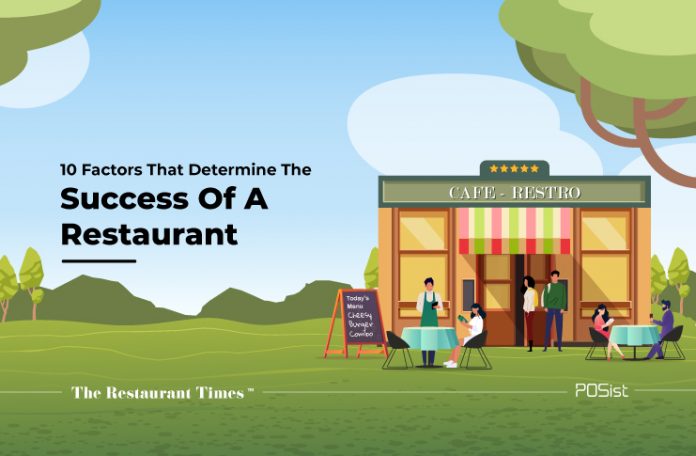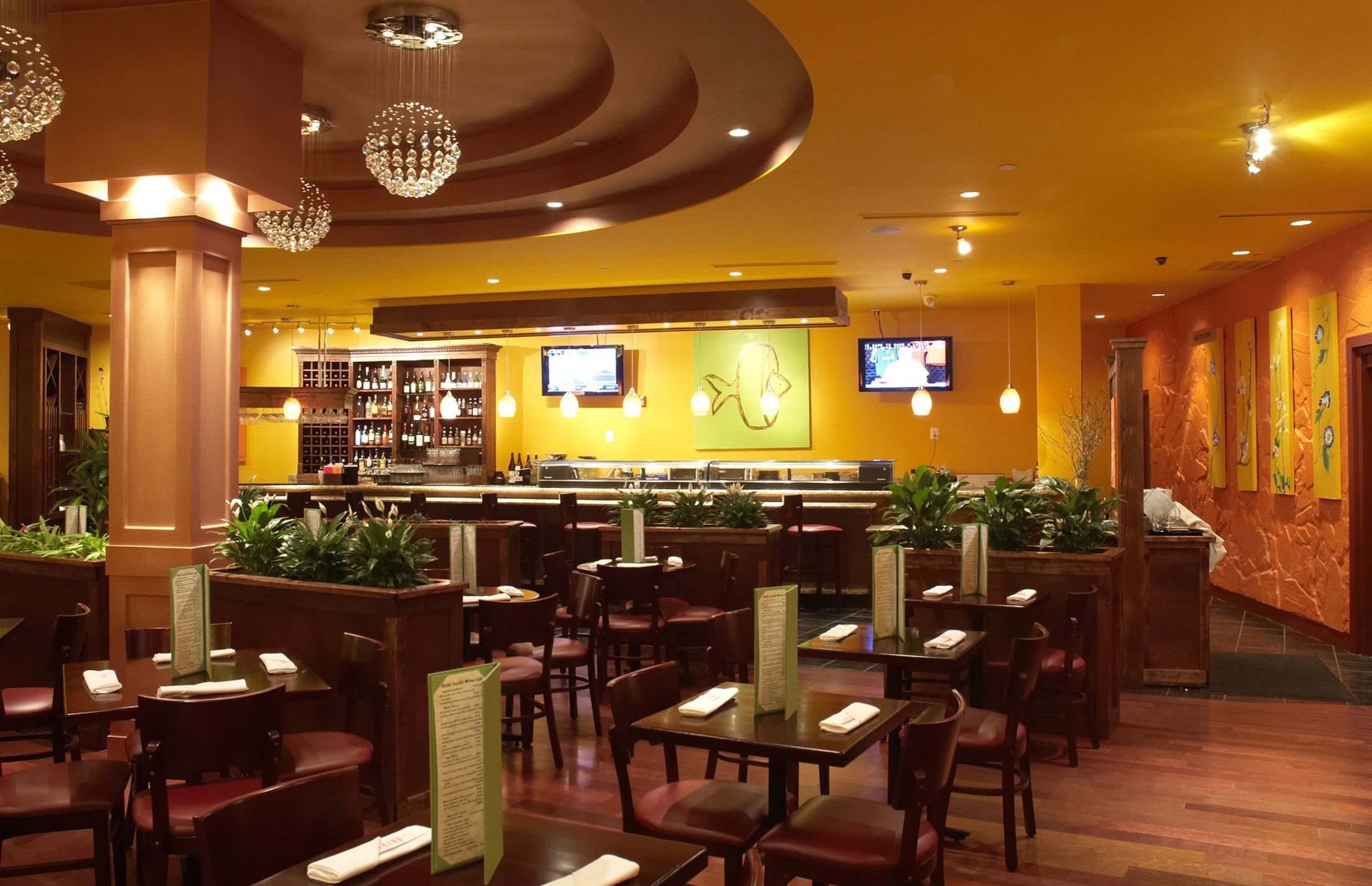Entering the restaurant industry is relatively easy, but what follows next is the ability to survive the competition. Sixty percent of restaurants fail in the first year of running operations, whereas 80 percent go out of business within five years. Unlike the finest secret recipes of food cooked to perfection, there is no secret recipe for a successful restaurant business. In the restaurant business, success comes with hardship and many years of experience.
Some of the most successful and iconic restaurants have managed to survive the stiff competition in the industry by developing a keen understanding of what works best for their business. We spoke to some of the established restaurateurs to understand what they regard as the key metrics of their successful restaurant business. This article presents ten vital factors to be kept in mind for the long term success rate of the restaurant.
Crucial Factors Determining The Success Of A Restaurant
Running a successful restaurant requires a thorough understanding of the brand’s image, expectations of the customers, and how to deliver results. We have listed down some important factors that lead to the success of a restaurant.
1. Guest Experience
Taking care of customers is the critical first step when it comes to restaurant success. Delightful customer experience is a product of excellent customer service. Right from greeting customers to presenting the food, creating an experiential dining experience to offering hassle-free payment checkout options, successful restaurants make the customers feel valued. If the customers are satisfied with the restaurant’s service delivery, the financial success of the restaurant is likely to follow.
2. Customer Feedback
Successful restaurants value the opinions of their customers and take their feedback very seriously. They actively encourage customers to provide feedback at every level of their dining experience. Customer feedback offers a realistic understanding of customer perception and preferences related to the brand. If customers are not satisfied with either the food, service, quality or anything that doesn’t fulfill their expectations, a feedback system helps the restaurateurs to understand the customer’s requirements and bring improvements.
Abhijit Gupta, the owner of ‘The Pizza Bakery,’ lays heavy emphasis on customer feedback and considers it one of the most critical success metrics.
“This is a crucial step for us to retain our leadership position as Bangalore’s best selling sourdough pizza. It helps keep competition at bay in the immediate term as well as the long term. The last thing we want to hear is, Pizza Bakery is second best. If enough customers aren’t rating our food excellent, we know there’s room for improvement and always work on it.”
3. Employee Satisfaction
Opening a restaurant brand requires an idea, but establishing a reputed brand name involves teamwork. The attitude of the employees and their motivation towards work dramatically affects the entire working of the restaurant. If your employees are not satisfied, it lowers their morale resulting in poor delivery of quality in food and services.
Owners of successful restaurant brands ensure that they get buy-in from the entire staff on and work together meticulously on creating something that they had envisioned for their restaurant. Taking consistent feedback from the employees, evaluating their responses during the periodic assessment or appraisals and incentivizing good performance are some critical methods to improve employee satisfaction.
4. Consistency
Consistency is of utmost importance in the restaurant industry. A consistent experience in food and services holds a massive significance in elevating the brand’s reputation in the minds of customers. Some of the most successful restaurant chains like McDonalds have been able to maintain uniformity in the services and consistency in their recipes for decades.
Maintaining consistency across the entire restaurant also helps to build brand loyalty among customers. Restaurants that are able to offer consistent taste in their dishes follow standard procedures across the entire restaurant operations. The uniformity and standardization that a restaurant follows in its recipes, kitchen, and services are crucial for the success of a restaurant. Maintaining consistency in these parameters leads to the success of any brand.
“In this modern world where the customer is more aware and open to trying food dishes from around the world, we have brought them an international street food and adapted it to the local taste while maintaining the authenticity and quality of the product,” says Dhaval Shah, Director-The Chimney Factory
5. Financial Costs
The initial years of operating a restaurant require adequate capitalization to build the business. It may take months for the restaurant business to break even and become profitable. Prioritizing capital needs in the first initial months is essential for the success of the restaurant. An objective assessment of operational costs and expenses is critical for the restaurant business to be sustainable.
Along with continually improving their restaurant business, most successful restaurateurs find opportunities to reduce costs and increase their profits. Constant checks on the food and inventory costs, lowering the variable costs, optimizing expenditures, updating menu costing, etc. are some of the ways to optimize the overall costs and improve the profitability quotient for the restaurant.
6. Technology Innovations
With new restaurants entering the restaurant space every day, restaurants that are swift in adapting to technological advancements with changing times acquire and retain more customers. Successful restaurant operators constantly evaluate new offerings that help them to upgrade their business.
From implementing a robust Point of Sale system to introducing robot chefs in the kitchen, restaurateurs are focusing on technology innovations to automate and streamline the entire operations. Technology innovations not only save a substantial amount of time, but they are incredible sources for increasing customer satisfaction and profitability.
7. Adaptability
The restaurant business is competitive and challenging. Even if your restaurant serves the best food but fails to adapt according to the changing trends, there is a substantial risk of missing out on potential customers. Analyzing the industry trends and adapting according to the changing customers’ preferences is crucial for the success of a restaurant.
The restaurateurs need to keep a close watch on everything that is happening in the F&B industry. What are the latest food trends? How to adapt according to the changing customer preferences? For instance, food delivery services are gaining popularity among customers. Observing the changing shift in the customer’s ordering preferences, restaurateurs that have been swift in establishing a robust delivery system have gained a competitive advantage.
Similarly, healthy food is the newest trend in the restaurant industry. Looking at the demand for healthy food, restaurants, including some of the largest fast-food chains, are adapting healthier cuisines or innovating their menus. Tweaks have to be made consistently based on the new adaptations keeping in mind that the authenticity and the quality of the brand remain unaffected.
8. Competitive Edge
A successful restaurant has the capability of distinguishing itself from its competition. In spite of the presence of other players in the market, successful restaurants can build a strong network of customers.
Whether it is the unique taste of the dishes, menu offerings, presentation of food, quality of service, ambiance, or any other aspect, restaurateurs must focus on establishing and planning their own unique business model. Therefore, to stand out from the rest of the competition and become a successful brand, it is crucial to carve a niche and ensure that your core values remain intact.
9. Targeted Marketing
The flourishing businesses of some of the most iconic and legacy restaurants didn’t require much marketing efforts. However, a definite marketing plan is a prerequisite in determining the success of restaurants operating in today’s scenario. The marketing strategies of some of the best restaurants are customer-centric and focused on the brand’s niche.
Restaurateurs are understanding the key micro-moments experienced by customers and opting for an omnichannel marketing strategy with a mix of online and offline marketing to leverage them. An advantage of targeting the marketing campaigns to well-defined customer personas makes it possible for restaurateurs to track the ROI of each campaign and improvise their marketing efforts accordingly.
10. The Owner’s Involvement
A restaurant business can never be successful without the involvement of the owner/s. Converting a restaurant business plan into a successful business requires proper planning, training the employees, and having in-depth knowledge about the latest developments in the restaurant industry. The most successful businesses are a result of the owner’s involvement in the restaurant’s daily operations.
These factors are the cornerstones in building a successful restaurant brand. In this competitive and volatile industry, giving due importance to these vital factors can help you build a successful restaurant business!



















